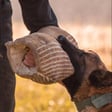
Kevin - Hardscape/Landscape Professional
Kevin began mowing lawns in 2000 as a side business in high school to support himself through college. He hung up hand-made signs in hair salons and the grocery store and ran ads in the local newspaper. The unfortunate part of this business idea was that he did not own a lawnmower. He borrowed a push mower from a family member and started out mowing. A few years later he saw an ad for a local mowing company for sale and he was able to make the purchase. Now, Kevin is the owner of a Landscaping company. This interview is a great snapshot of what really goes on in to making a business run and the countless hours, and years, it takes to be successful. There are a ton of kernels of advice in this from a guy who never gave up and made it work, thru work. Thanks Kevin! Kevin and Custom Creations 417 can be found HERE.
If you'd like to support the show, you can do so HERE. Thanks!



















